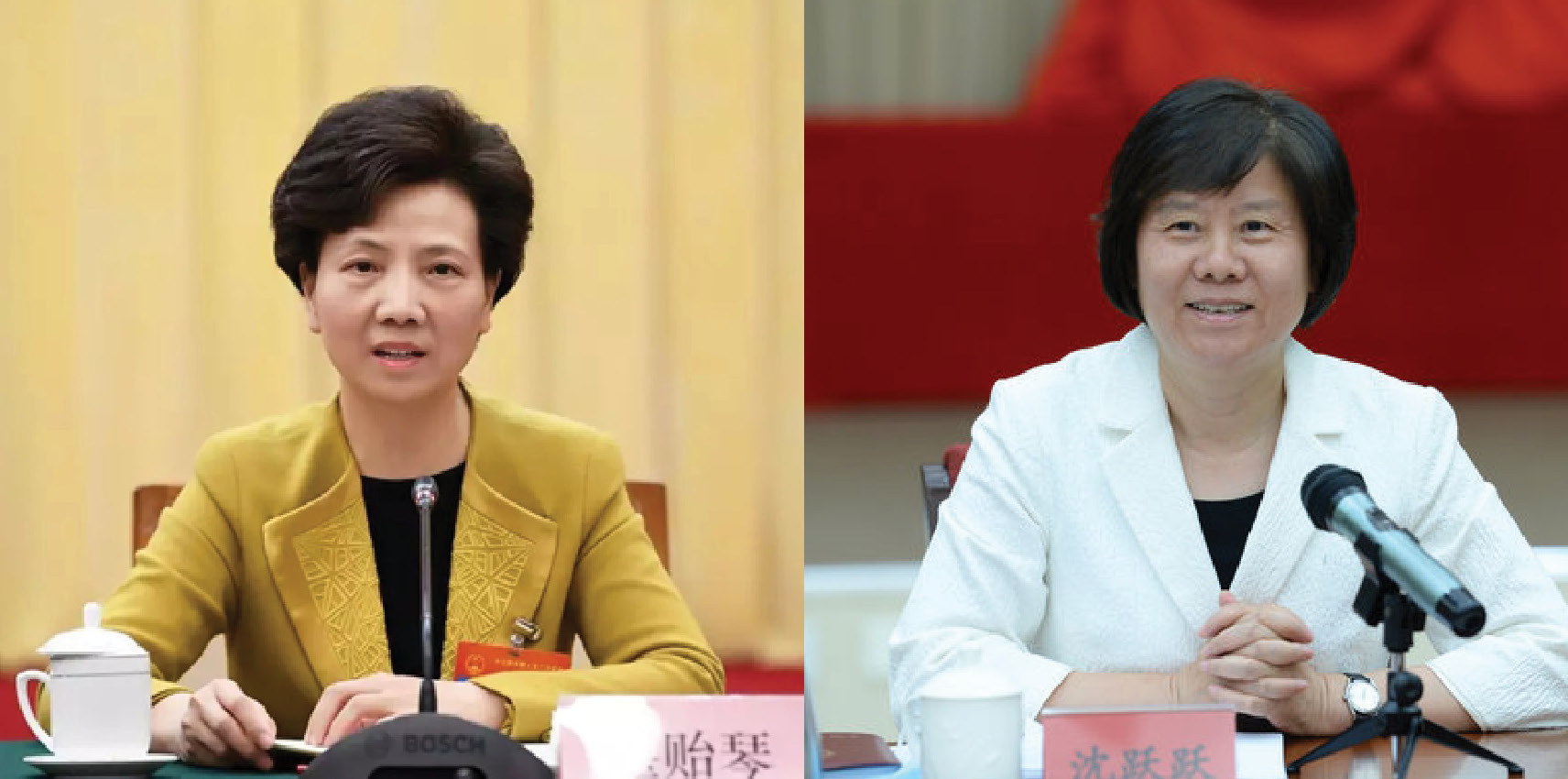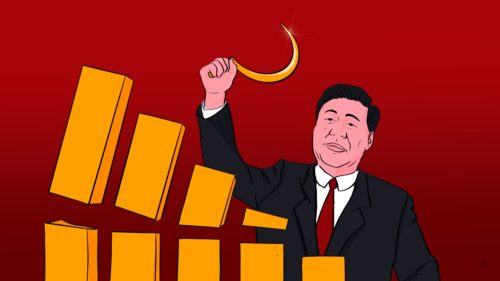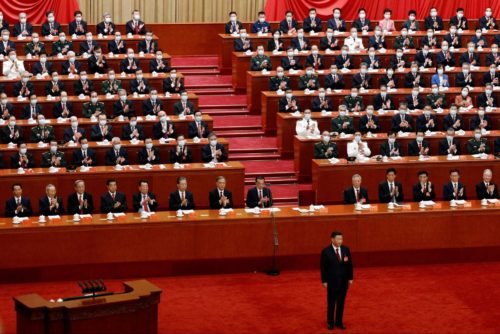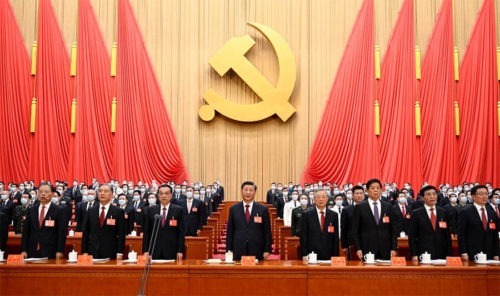The two women competing for promotion at the 20th Party Congress
Shen Yiqin and Shen Yueyue lack significant policy distinctions, in part because making it to the highest echelons of the Chinese Communist Party requires strategic political deference. But one of them will have the distinction of becoming the next — and likely only — woman in the Politburo.

In the 101-year history of the Chinese Communist Party, the policy-making body known as the Politburo has had a total of six women who have been full-time members — and three of them were the wives of revolutionary leaders (Jiāng Qīng 江青, wife of Máo Zédōng 毛泽东; Yè Qún 叶群, wife of Lín Biāo 林彪; and Dèng Yǐngchāo 邓颖超, wife of Zhōu Ēnlái 周恩来).
The current woman on the Politburo, Sūn Chūnlán 孙春兰, is set to retire later this month. Who will fill her shoes?
It looks like the contest is playing out between Shèn Yìqín 谌贻琴 and Shěn Yuèyuè 沈跃跃. During the upcoming 20th Party Congress, Politburo members will be nominally elected by the Central Committee, all approved by General Secretary Xí Jìnpíng 习近平. We will know who makes it by the end of the meetings, which begin on Sunday and last approximately one week.
UDPATE, 10/24/22: Neither woman was selected for the Politburo.
Shen Yiqin and Shen Yueyue lack significant policy distinctions, in part because making it this close to Politburo membership requires strategic political deference. But the two women have distinct factional backgrounds, career paths, and experiences, all of which may affect their chances of winning the spot. The Asia Society Policy Institute’s Center for China Analysis has produced a website that offers analysis on Shen Yiqin and Shen Yueyue, as well as predictions on personnel appointments at the upcoming Congress and their implications.
Shen Yiqin is most likely to win the contest. In 2015, she became a vice party secretary of Guizhou province’s Political and Legal Affairs Commission, and in 2018, she became the first female governor of the province. In 2020, she became one of four Chinese women to ever land the role of provincial party secretary.
She is also part of the Bai ethnic minority, which — cynically speaking — means she simultaneously checks the woman box and the ethnic minority box. (China’s two other female provincial party bosses are also ethnic minorities.) The only point against is that her reputation may be slightly dented by a recent bus crash in her home province, where 27 people were killed en route to a COVID quarantine center.
Despite the fact that her entire career has been limited to Guizhou (besides her current stint as a full member on the 19th Central Committee), Xi has reason enough to trust Shen Yiqin — and to him, loyalty is all-important. She worked directly under Lì Zhànshū 栗战书, who is among Xi’s closest allies. Li is currently a member of the Politburo Standing Committee and previously served as director of the General Office and Xi’s Chief of Staff (in this capacity, he was in charge of Xi’s personal bodyguard). He pledged “absolute loyalty” to Xi in 2014, before it became both fashionable and required. Shen’s association with Li Zhanshu places her firmly in Xi’s faction.
Shen Yueyue, the other candidate, is from Ningbo, Zhejiang province, and currently serves as a member of the 19th Central Committee, vice chair of the National People’s Congress Standing Committee, and president of the All-China Women’s Federation. She has more national leadership experience than Shen Yiqin, having served in the Central Committee since 2007 (Shen Yiqin was appointed to the Central Committee in 2017). She was promoted under Hú Jǐntāo 胡锦涛 and is part of the Communist Youth League faction. Both factors could count as strikes against her, as Xi continues to quash associates of his enemies and predecessors.
Before Xi, top personnel selections have always primarily been based on loyalty, but Xi has taken this to the extreme. Under Xi, perceptions of disloyalty from cadres of both genders and at all levels are more likely to result in purges or punishments.
Political tightening in Xi’s “new era” has also been accompanied by diminishing representation of women at lower levels of national leadership. An analysis of the CCP Central Committee by Cheng Li from the Brookings Institution shows a decrease in the percentage of female members on the Central Committee, from 8.8% in 2012 to 7.9% in 2017.
It is precisely the opaque nature of Chinese politics that makes representation in leadership so important. Xi’s paternalistic and tone deaf “Red New Deal” and “three-child policy,” which encourage having more children and raising them more traditionally, could have benefited from conversations with women on the Standing Committee. Too bad there weren’t any.
Sun Chunlan has served five years as the person responsible for sports, education, and culture, but she is now most known for executing Xi’s zero-COVID policy, for which she appears to be earning a bad reputation among the people. Before joining the current Politburo, Sun held posts in Dalian, Fujian, and Tianjin, and served as head of the United Front Work Department from 2014 to 2017.
Guoguang Wu, senior fellow on Chinese politics at the Asia Society Policy Institute’s Center for China Analysis, says the lack of high-level women cadres disproves the CCP’s claim that it is a “meritocracy.”
“Such a conception assumes that women are incapable of political leadership, which is also the CCP elites’ underlying assumption of maintaining their male-dominated leadership,” Wu said.
Xi’s ideological hardening and Red New Deal have revealed his personal disdain for a sprawling range of phenomena he considers threatening to the party’s political and moral hold over the people: too-powerful tech CEOs, Gen Z-ers who spend too much time playing video games, online LGBT groups, as well as media representations of men that he deems “sissy.”
These encroachments are indicative of how Xi sees himself: as the patriarch-in-chief. They also betray his penchant for traditional values that are both chauvinistic and outdated. Don’t expect his paternalism, now enmeshed in the CCP’s domestic policy agenda, to waver during his third term.





